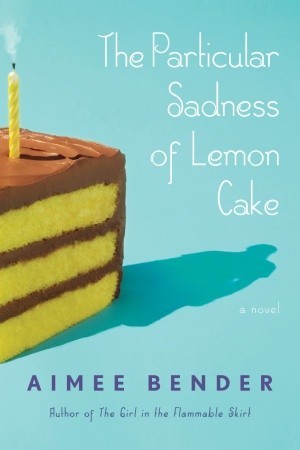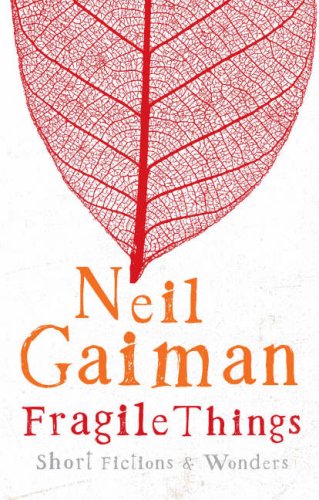At long last, Part 2 is here! I’ve had a pretty busy time these past few weeks, full of some raaaaather exciting news that I’ll hopefully get fully sorted out in the next week….and then I’ll be able to reveal all! Although if you follow me on twitter, you might already know snippets of it, I was WAY too excited to keep every little bit a secret!
Without further ado, because I have a million and one TO do, these are the two other titles I took to Tenerife with me and laughed at, admired, cried at and loved. I did read another novel, The Draining Lake by Arnulder Indriadson, and was originally going to include it in this post – but as it’s one of a series (the infinitely fantastic Reykjavic Mysteries) I’ve decided I want to do a round up post of all of them at once when I’ve finished. Which, as I’ve read 5 out the 6 in the past 3 weeks alone, shouldn’t be too long! I’ll draft that as my next post… keep checking back, Scandi/Nordic Noir fans!
The Particular Sadness of Lemon Cake by Aimee Bender
I must admit, this is one of those books I was originally attracted to because of the cover. And the title. Remember in my last post, when I said how I really love a good byline? Well, I really love quirky and interesting titles in the same way. If a book has an imaginative or funny or clever title, it’s kind of a law that it then has be great. It sets up expectations. Fortunately, this one lives up to being a rather brilliant novel to match its rather brilliant title!
The Particular Sadness of Lemon Cake is told mainly from the viewpoint of Rose Edelstein, a young Jewish American girl who lives with her parents and older brother Joseph and who, at nine years old, finds out that she has a particular gift. Rose can taste emotions through food; the emotions of the person who prepared the food appear to her as clearly as if they were her own, even from a single bite. The first time this happened, Rose was eating her mothers lemon cake. Confused, scared, unsure and shocked all at once, Rose immediately realized that her beloved mother – so happy, bright and carefree on the surface – is actually full of despair, desperation and depression. Rose can’t work out how to explain her gift or even begin to fathom the reasons behind her mothers moods, and as days go by and she tastes the sorrow and sadness again and again, she begins to see her new ‘power’ as a curse, being privy to information that she doesn’t want or need or understand, all imbibed to her through the food she eats. Rose becomes overwhelmed and starts refusing to eat meals unless they’ve been cooked by someone happy, otherwise she nibbles on factory produced chemical laden junk snacks. Even then, she can detect the place of origin of all the different ingredients, the weather there, the mindset of the farmers who grew them, and the turmoil of the members of the production line involved in the preparation of her food. As time goes by, Rose becomes and inadvertent witness to all the secrets that families and society tries their hardest to keep; and as she grows up we see her learning to live with and trying to utilise her gift; and we watch her as she tries desperately to help those whom she doesn’t ever really understand herself.
The Particular Sadness of Lemon Cake is indeed incredibly sad in places, sad in a lost, confused and yearning sort of way. As Rose muddles through the turmoil of her life, trying to understand the reason for her gift, she is confronted over and over again with her mothers infidelity, her fathers increasing detachment from reality, and her brothers strange and unsettling behavior and frequent disappearances. Through Rose, Aimee Bender confronts the difficult questions in life – what to do when you know something you shouldn’t; how to love someone you know too much about; how to help someone who can’t even understand themselves. Parts are funny, parts are wise, parts are heart-breakingly sad and parts are incredibly philosophical – tied up in the web of secrets are issues of morality, friendship, loyalty, guilt and love. What Rose discovers about her brother in the latter half of book has the power and potential to further shatter the careful world she has constructed for herself since being that nine year old who ate that lemon cake, and as she embarks on yet another rollercoaster ride of emotions and abandonment and betrayal and loss and confusion we are tugged along after her, almost understanding but never quite reaching the solution that Rose is seeking. I felt exhausted after finishing this book, exhausted and drained and yet also strangely calm and happy in that quiet way that you sometimes get when finishing a Really Good Book. You know when you just know that a book has attached itself to your mind, and will stay there, and has been worth every word read in it? This is one of those books. It’s brilliant.
Fragile Things by Neil Gaiman.
So, I guess nobody’s surprised that a Neil Gaiman book made my shortlist…let alone a Neil Gaiman short story anthology. Can you blame me though, when Neil himself throws THIS line of beautiful words at you over Goodreads?
”Stories, like people and butterflies and songbirds’ eggs and human hearts and dreams, are fragile things, made up of nothing stronger or more lasting than twenty-six letters and a handful of punctuation marks”.
An assortment of SF, horror, poetry, speculative fiction and fantastical short narratives, Fragile Things is an accumulation of all the little weird, uncomfortable, twisted and nonetheless brilliant ideas to come out of storytelling, and somewhat oxymoronic when read in light of it’s title; there is nothing fragile or weak about any of these tales. I found them creepy, unnerving, exciting and thrilling, and once again full of the recognisable ‘Gaiman magic’ – short, simple sentences, sleek wordplay, imaginative metaphors and colourful visual prompts. With only a few opening sentences, Gaiman can successfully conjure up a perfect image of the setting; an absolute must if you only have a certain number of pages in which to tell and conclude the entire story. Of course, I had a few favourites – I especially loved The Problem of Susan, which speculates on the untold life of Susan from C.S Lewis’ Chronicles of Narnia, and Other People deserves a special mention for the sheer cold brilliance of the twist at the end; a twist that sent an actual icy chill down my spine. I don’t usually read horror as I don’t enjoy being terrified for supposed ‘fun’, but Gaiman’s idea of horror is so wound up in philosophy, truth and the behavior of humanity that it becomes addictive and understandable – just believable enough to plant that seed of fear; yet clever enough to reveal itself as a warning, a ‘what if’ scenario that is avoidable as long as we continue to be shocked by its content.
Fragile Things struck me overall as being the most ‘adult’ of the Neil Gaiman books I’ve read so far, missing some of the whimsical fancifulness of some of his other tales; instead delving deeper and darker into the realms of imagination, challenging us to accept that things are not always a fairytale, and not always what they seem. The short stories are still full of mystery and magic, but it’s magic that you wouldn’t necessarily want to be part of. From the sidelines, the worlds that Gaiman conjures up in Fragile Things are beautiful and intricate and terrifying and suffocating all at the same time, but for once, none of them are fictional worlds that I’d ever want to visit. If you’re looking for something a bit different, that’ll really make you sit up and think (and probably turn all the lights on at night), then read this. But have a nice fluffy film ready to stick on afterwards.


At first I wanted The Particular Sadness of Lemon Cake because of the title, but I’ve seen a few so-so reviews that made me think it wasn’t for me.
Ahh see I hadn’t really read many reviews of it, I skimmed over a few on Goodreads before I bought it just to see if I would MAJORLY regret it or not, but didn’t find anything to put me off! I’m really glad I read it as I genuinely enjoyed it, it was very different to things I’d usually pick up but it was great to have a change.
I’d say if you ever have time give it a go – you could request the first chapter via kindle? – as I think it’s fabulously written and very emotive. Of course, if the subject matter doesn’t appeal, fair enough, but as far as prose goes, I loved it!
well-behaved Learn Alot more
I got this web page from my buddy who shared with me
about this website and now this time I am visiting this
site and reading very informative content at this place.